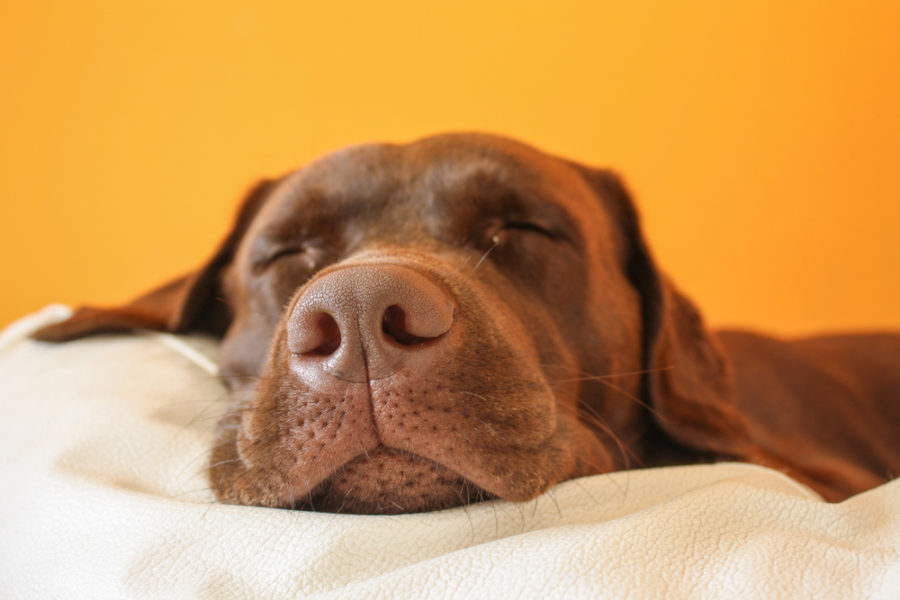Is your dog getting as much shut-eye as he should be? Here’s some info that’ll help you keep track of his sleep cycles – and his overall health.
Over the years, there has been a lot of research done in the science of sleep. As you might expect, most of these studies have focused on humans. However, there’s still been enough research done on our canine friends to gain some insight into their sleep cycles.
According to an Applied Animal Behaviour Science study done in 1993, a dog usually has 23 distinct periods of sleep over the course of eight hours. In the study, each period of sleep lasted an average of 16 minutes before the dog woke up. Drawing on these findings – and others like them – we’ve put together some info to help you better understand your pup’s sleep, and how it affects his health.
Understanding “active” sleep
It might be really cute to see your dog “running” in his sleep. But if he kicks his legs, twitches or whines while he’s snoozing, it’s actually an indication that he isn’t sleeping soundly. This is what scientists call “active sleep”. When your dog is in a state of active sleep, he’s more likely to wake up at the drop of a hat and stay awake for longer stints in between waking. On the contrary, if he’s motionless and silent during sleep, he’s probably resting soundly.
How feeding routine affects his slumber
Feeding your furry friend twice a day instead of just once could be the key to helping him sleep more deeply, according to the Journal of Veterinary Behavior.
Compared to when fed once a day, dogs who are fed twice tend to go to sleep earlier at night and wake earlier in the morning. They also tend to nap less often, but for longer stretches of time. Get into the routine of feeding your dog twice a day and see how it works with your schedule. Chances are, it won’t take long to make the adjustment – and your dog will be more rested because of it!
New locations cause disturbed rest
Just like humans, dogs often struggle to adapt to new environments. If he’s never been to the kennel or a relative’s house, for instance, his sleep will likely be more active in those places than it would in the familiarity of his home. It can take a few days for him to get used to the new sounds, smells and patterns of the new environment, especially if other animals are around. The more you can avoid putting your dog in strange environments for long periods of time, the better he’ll sleep.
Comfort matters
Just because he’s an animal doesn’t mean your dog enjoys sleeping on hard surfaces. To make him as comfortable as possible, invest in a quality bed – or let him snuggle in with you during the night! Believe it or not, there are some benefits of sleeping with your dog, as long as he doesn’t impact your sleep. It’s also important to keep in mind that dogs tend to sleep best in the dark, so be sure to find a comfortable, cool place for him to doze when the sun is up!
Rest as a welfare tracker
If your dog is sleeping a lot less or more than usual, this can be a sign of a medical issue, according to a study in PLoS One. Keep an eye on your dog’s sleep cycles whenever possible in order to make sure something else isn’t going on.
If you’re tirelessly worried about your dog’s sleep cycles, talk to your veterinarian. He or she will be more than happy to talk to you about what’s normal for your dog’s breed and age, and will find ways to improve his sleep.








